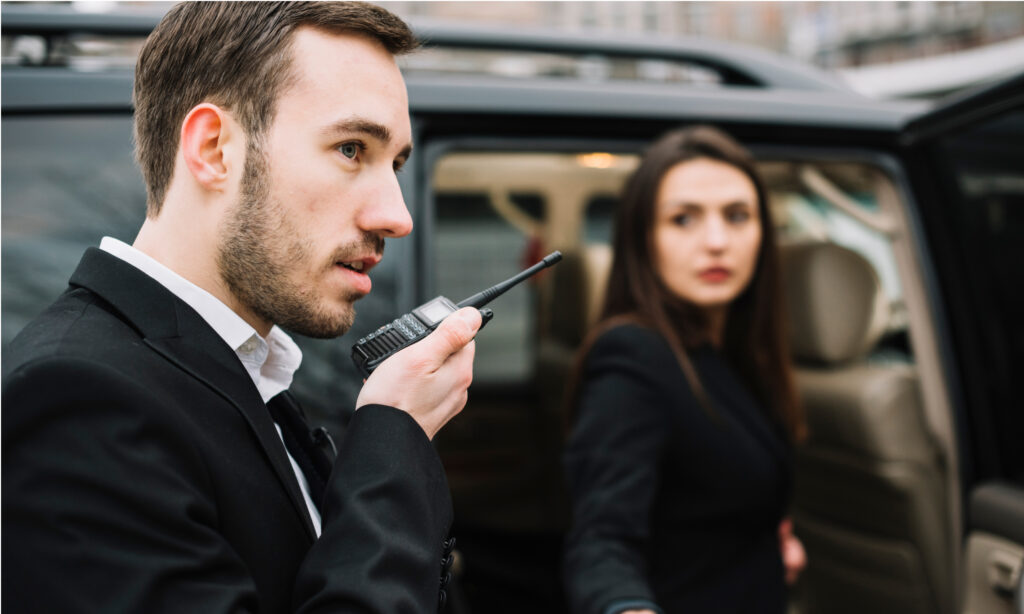Planning a special event can be exciting, but it’s often accompanied by a nagging question: How do we ensure the safety and security of our guests?
Whether it’s a large-scale concert, corporate conference, or intimate gathering, the fear of unforeseen incidents can cast a shadow over the event’s success. Security shouldn’t be treated as an afterthought; it’s a fundamental aspect of ensuring everything runs smoothly.
In this guide, we’ll explore tailored strategies for securing special events, empowering you to create a safe, enjoyable experience for everyone.
Understanding Your Event’s Unique Needs
Before diving into specific security strategies, it’s essential to assess your event’s unique requirements.
Consider these key questions to define your approach for securing special events:
- What type of event is it? A wedding, conference, or concert each has different security needs.
- How many attendees are expected? The size of your event directly influences the scale of the security operation.
- What is the venue type? Indoor, outdoor, or a combination will determine how security is planned and executed.
- Are there any potential risks? Consider risks like crowd surges, theft, vandalism, or high-profile guests.
- What is your budget? Ensure security measures fit within your financial plan without compromising safety.
By answering these questions, you’ll be able to develop a tailored security strategy that aligns with your event’s specific needs.
Developing a Tailored Security Plan
Once you’ve assessed your event’s needs, it’s time to build a comprehensive security plan for securing special events.
Here’s how you can tailor it to perfection:
1. Conduct a Risk Assessment
A thorough risk assessment is the backbone of any security strategy. Identify potential threats, vulnerabilities, and the likelihood of incidents. Consider threats such as:
- Crowd Control Issues: Large gatherings can lead to stampedes or fights.
- Terrorism Concerns: Particularly for high-profile or large events.
- Vandalism and Theft: Events with valuable items or exhibits are prone to these risks.
- Intoxicated Guests: Alcohol can escalate tensions and lead to altercations.
- Disgruntled Individuals: Individuals with personal grievances may pose security threats.
2. Security Personnel Deployment
Effective use of security personnel can significantly reduce risks. For a well-rounded approach:
- Security Guards: Provide crowd control, access management, and emergency response.
- Specialised Teams: For larger or riskier events, hire professionals trained in counter-terrorism or first aid.
- Use of Technology: Metal detectors, bag checks, and security cameras can complement personnel efforts, offering real-time surveillance and threat detection.
3. Control Access
Access control is crucial for preventing unauthorised entry. Implement these methods:
- Ticketing Systems: Ensure only ticket holders gain entry by verifying tickets at checkpoints.
- Bag and Body Checks: Inspect attendees for prohibited items like weapons or alcohol.
- VIP/Staff Badges: Identify personnel and guests with a clear, reliable ID system to prevent confusion.
4. Prepare for Emergencies
No event is immune to emergencies. Preparing for these scenarios is key:
- Evacuation Plans: Create clear, accessible exit routes.
- Communication Protocols: Equip staff with radios or mobile apps to coordinate efficiently.
- On-site Medical Teams: Having medical personnel on standby can address injuries or health emergencies quickly.
5. Utilise Security Technology
Leverage modern tools to enhance security:
- Facial Recognition: Spot potential threats by comparing attendees to watchlists.
- High-Definition CCTV: Monitor and record activities in real-time to preempt issues.
- Drone Surveillance: Particularly useful for large outdoor events to get a bird’s-eye view of the crowd.
Best Practices for Different Event Types
1. Concerts and Festivals
- Perimeter Security: Establish a secure barrier around the venue with checkpoints.
- Metal Detectors: Prevent the entry of weapons and illegal substances.
- Crowd Control: Position security personnel at high-density areas like the stage.
2. Conferences and Corporate Events
- Badge Identification: Only pre-approved guests should access certain areas.
- Surveillance Cameras: Monitor meeting rooms and exhibition areas for suspicious activity.
3. Weddings and Private Gatherings
- Guest List Management: Ensure only invited guests can enter.
- Security Guards: Visible security personnel deter uninvited guests.
- Lighting and Visibility: Adequate lighting around the venue discourages trespassing.
Final Thoughts
Securing special events requires a well-rounded approach, focusing on risk assessment, access control, security personnel, and technology integration.
By implementing a tailored security strategy, you can ensure that your event runs smoothly, giving you and your guests peace of mind.For professional, reliable event security services, contact Accord Security today. With years of experience in safeguarding a variety of events, we’re here to help you ensure that your event is not only safe but also successful.
Frequently Asked Question
Technology helps in real-time monitoring and rapid threat detection, allowing for swift responses to potential risks.
The number of security personnel depends on the event size, risk level, and venue. Consult with security professionals for a tailored assessment.
Have a robust emergency plan, including evacuation routes, medical teams, and clear communication protocols.
Even smaller gatherings benefit from basic security measures like guest list management and access control to ensure safety.
Yes, technology like CCTV, metal detectors, and drones can significantly enhance safety and deter potential threats.
